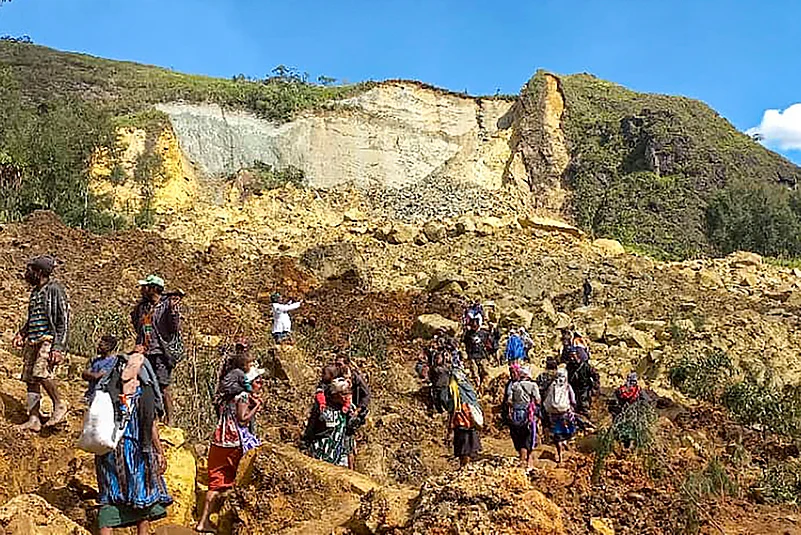As the aftermath of the massive landslides in Papua New Guinea continues to wreak havoc on the country, the Disaster Centre has now informed the United Nations that over 2,000 people have been buried alive due to the landslides in the village of Kaokalam.
Papua New Guinea Landslide: Over 2,000 Buried Alive, Nearly 700 Assumed Dead In Aftermath of Landslides
Papua New Guinea's disaster centre has informed the United Nations that over 2,000 people have been buried alive due to the landslides in the village of Kaokalam.

As per a report by AFP, Papua New Guinea's national disaster centre has told the UN office in Port Moresby that the landslide has buried more than 2,000 people alive.
This numbers released by the Oceanic country are a drastic increase from the figures released by the UN on Sunday.
As of Sunday, the toll for people buried due to the landslides stood at around 670. Despite the high toll, less than a dozen bodies have been recovered.
Rescue operations are underway but the efforts to find people have been hindered by the debris which is around 32 feet deep in some places. The lack of adequate equipment is also causing additional problems to the rescue operations.
Following the landslides on May 24, Papua New Guinea's Prime Minister James Marape expressed his condolences and deployed the defence forces to the area of Kaokalam.
However, as per the latest reports, locals in the village are still waiting for the defence forces officials to come in with their rescue operations.
As per CARE Australia, one of the aid agencies on site, the ground in the village is extremely unstable and could trigger more landslides, making it difficult to find and locate bodies of those buried alive.
The disaster centre added that the landslides have caused major damage to buildings, food gardens as well as the economic lifeline of the country.
As per the letter received by UN officials on Monday morning, the main highway has also been completely blocked due to the landslide.
"The situation remains unstable as the landslip continue to shift slowly, posing ongoing danger to both the rescue teams and survivors alike," the national disaster centre further told UN officials, adding that urgent response from all players - regional, national and international is required.
-
Previous Story
 Middle East: US Says 'Closer Than Ever' To Gaza Ceasefire Deal; Israel Expects Allies' Support On Iran Retaliation
Middle East: US Says 'Closer Than Ever' To Gaza Ceasefire Deal; Israel Expects Allies' Support On Iran Retaliation - Next Story



















